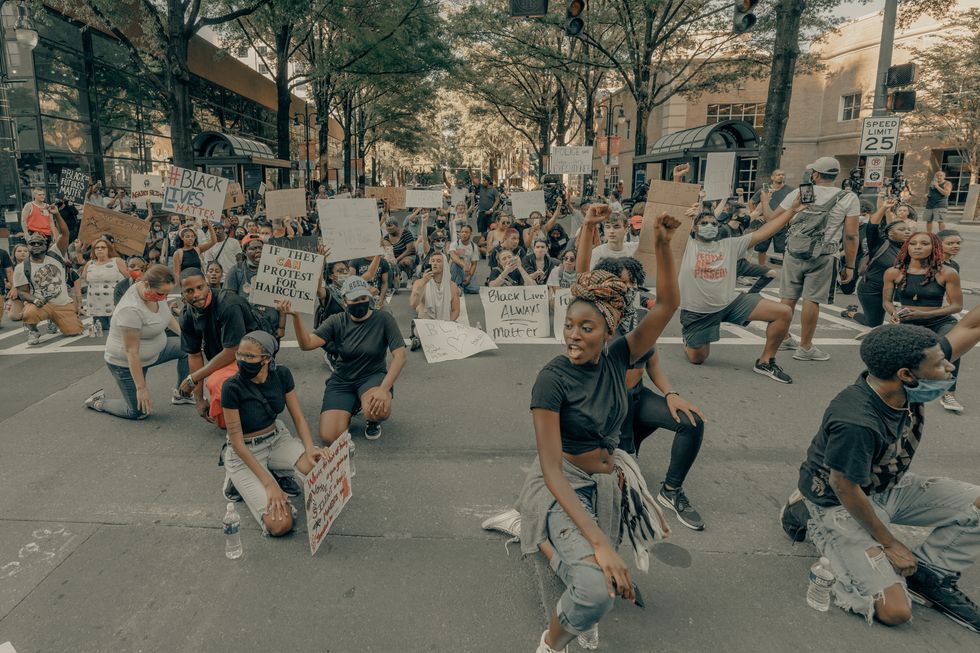When we think about context, what comes to mind?
I imagine images of context clue instruction sheets, using the structure of a sentence in order to figure out the meaning of an unknown vocabulary word. Or, we include context when discussing a personal story that others may not be familiar with. When we add context to a situation, we can enable people to break down the information and begin to understand why that word means what it means or why the story was more significant than it seemed. We also look for context in our everyday situations. When we go to the supermarket, for example, the context is that we need food in order to keep ourselves healthy and strong, making us understand why we went in the first place. Or, when we go to the airport, we understand that the multiple security screenings are a way to keep us safe. We know this because of, you guessed it, context.
To help us better understand the meaning of context, let's look at how Webster defines it: "the interrelated conditions in which something exists or occurs."
Now that we have a better understanding of the meaning of context, let us continue by looking at it in more complex terms.
As an English major, and later a recipient of a B.A. in the subject, context played a huge part in much of my course work. I used context in order to unpack or better understand an author's work. Whenever I read a book, I thought about the context of the novel itself: was it written in a specific year? Is it set during a specific year? Is the author using their own experiences to shape the narrative? When I thought about the context of the novel, of the conditions it was written in, it helped me take the viewpoint of the author and understand why they wrote it. Perhaps, it makes me more sympathetic towards the characters or the writer themselves. Hence why context is important to employ in everyday life.
Now that I've sufficiently bored you with ramblings that go nowhere, let me bring to attention the entire point of this piece: the context of protesting.
Recently, protests have sprung up across the world in reaction to the violent murder of George Floyd at the hands of the police. This is no singular, isolated incident but rather a collection of other unwarranted killings of black people at the hands of police or vigilantes (see Ahmaud Abery's murder) over a number of years. Now, please understand that I'm not trying to make this into a grandiose political statement, but my aim is to have people understand the context of why protesting happens and why it's so important to take a stand.
Protests happen for a number of reasons: racism, sexism, homophobia, transphobia, gun violence, lack of proper resources, and a number of other reasons.
When historically oppressed folks are still experiencing oppression in this modern-day and age, it can be pretty tiresome, infuriating, and even saddening. These feelings, along with a global pandemic that has disabled the world and put many out of work, created a powder keg of emotions waiting to erupt at any given moment. They were looking for a solution to a problem that has been plaguing communities for years, for answers to a seemingly endless list of questions, and a way to improve the lives of their communities and others. Yet, when we turn our backs to them and ignore their cries for justice and reform, it invalidates their struggles and pushes them to the side as just another case of "far-left hysteria."
When you understand the context of these protests, you feel for them. You listen to them.
You educate yourself to become more aware of their struggles for justice. You become more self-aware of yourself and how your actions can contribute to change or enforce the status quo. Understanding context gives us the power to unlock feelings of empathy and to become more creative in the ways we can advocate for change.
Had it not been for protests and acts of civil disobedience, we wouldn't have a 9-5, Monday through Friday workweek. Women wouldn't have the right to vote. Gay men and women wouldn't have the right to marry or lead fulfilling lives. Segregation would still be the norm. People living with HIV/AIDS wouldn't have access to the proper care that they need.
And why do we remember these fights for equality and justice so fondly? Why do we celebrate them and make movies about them?
It's all very simple: context and understanding.
















